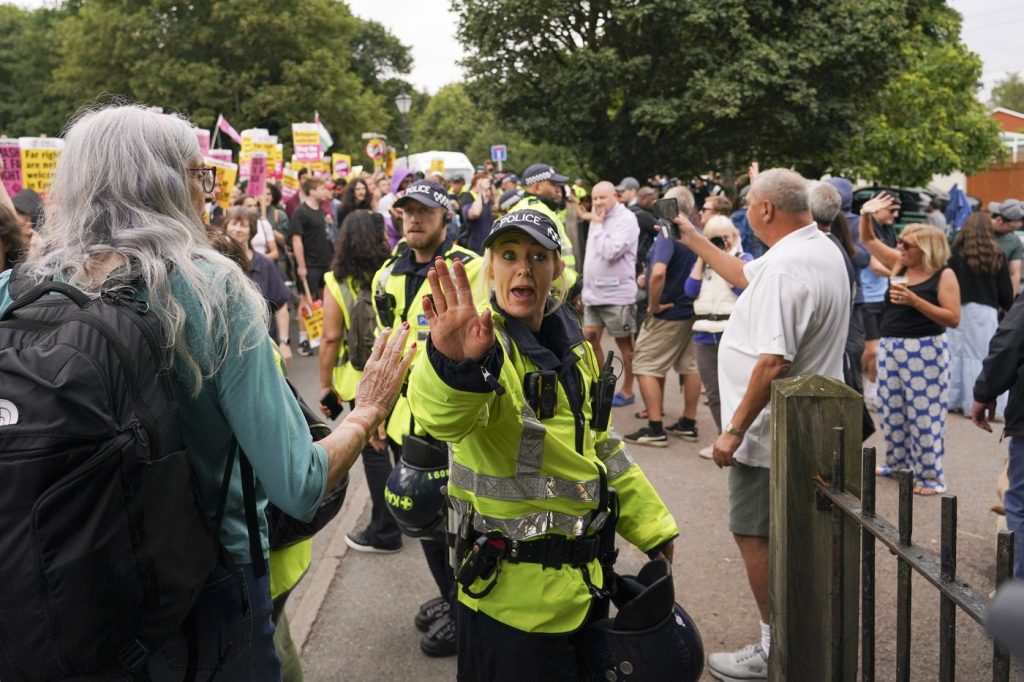LONDON (AP) – A hotel near London that has been at the center of heated anti-migrant protests in recent weeks is set to remove the asylum-seekers currently staying there. This decision comes after authorities successfully won a legal bid to evict the migrants from the Bell Hotel in Epping, Essex.
Officials from the Epping Forest District Council sought a judicial order to temporarily stop the accommodation of migrants at the hotel due to “unprecedented levels of protest and disruption” associated with housing asylum-seekers. The protests escalated significantly in light of a recent incident involving an asylum-seeker charged with the sexual assault of a 14-year-old girl, which sparked outrage within the community. The accused, Hadush Gerberslasie Kebatu, has denied all charges and is scheduled to stand trial later this month.
The protests near the hotel have drawn thousands of participants, many of whom were chanting slogans like “save our kids” and “send them home.” Initially peaceful, the demonstrations have turned violent, resulting in at least nine arrests related to the unrest. These protests have included not just local residents but also members of organized far-right groups, highlighting the polarizing nature of the issue.
In response to the growing tension, anti-racism demonstrators have staged counterprotests outside the Bell Hotel and other locations, indicating a community divided over the housing of migrants. Philip Coppel, a lawyer representing local officials, stated that the hotel’s role in housing asylum-seekers had become a “feeding ground for unrest” and contributed to community tensions.
A High Court judge ruled that the Bell Hotel must cease housing asylum-seekers by September 12. However, it remains unclear where the migrants will be relocated following this order. The situation reflects broader tensions in the U.K. surrounding the government’s use of hotels to house migrants awaiting asylum decisions, a subject that has ignited public debate and protest.
Last summer, a wave of anti-immigrant rioting swept through towns and cities in England and Northern Ireland, catalyzed by the tragic killing of three young girls in Southport. Misinformation surrounding this incident suggested a migrant connection, which further fueled public outrage and led to attacks on hotels housing migrants, mosques, police stations, and other local landmarks.
The ongoing situation underscores the difficulties faced by the U.K. as it grapples with the political, social, and economic implications of its immigration policies. Critics argue that accommodating asylum-seekers in hotels costs taxpayers millions of pounds, breeds social unrest, and results in migrants feeling targeted by local communities.











